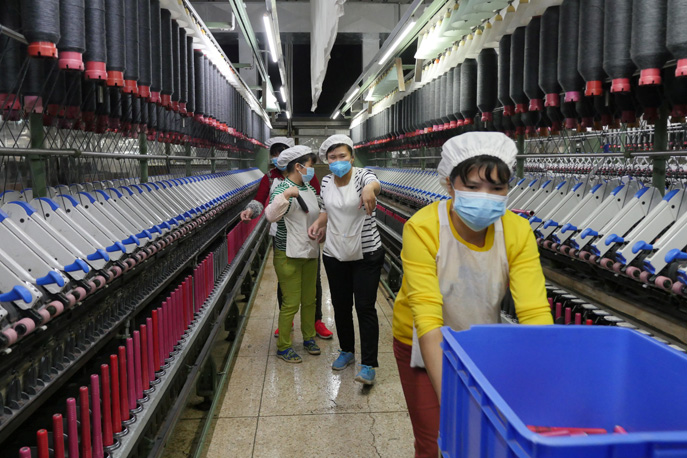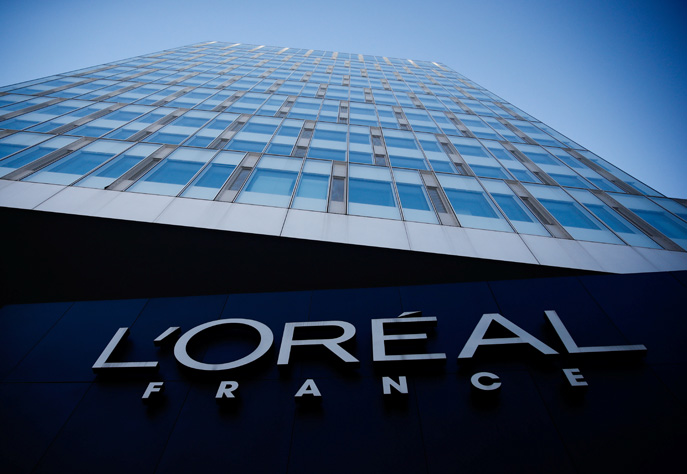In this comment piece, Phil Bloomer and Alysha Khambay of the Business & Human Rights Resource Centre say brands including Topshop, C&A and Urban Outfitters are passing the financial burden of Covid-19 to the most vulnerable people at the bottom of their in their supply chains
The scale and scope of the Covid-19 pandemic grows each day. And so does its impact on business and for the rights of workers and communities that depend on those businesses for their livelihoods.
In the US, 10 million workers have registered as unemployed in two weeks, while the UK Institute of Fiscal Studies reports that the low-paid, women, and young workers are seven times more likely to work in UK sectors that have now been shut down.
Less obvious to those suffering from the pandemic in the West is the devastating impact the economic slowdown is having on the supply chain factories of Asia and Latin America as developed market economies.
Suppliers in garment-producing countries have faced an onslaught of order cancellations, reduced order volumes and extended payment terms
At BHRRC we’ve been looking in depth at what is happening in the apparel industry supply chain, where an estimated 60 million low paid and mainly female workers have had their livelihoods put at risk as major brands and retailers have scrambled to minimise their losses by shifting the financial burden of the crisis down to the bottom of the supply chain.
Major brands, such as Topshop (Arcadia Group) and C&A, have cancelled orders from suppliers to avoid payment for goods that have already been produced, with some like Urban Outfitters invoking force majeure clauses in their contracts to do so.
This approach stands in stark contrast to advice from Fiona Reynolds, chief executive of the United Nations Principles for Responsible Investment, who says companies “should be managing for the long-term when assessing how they treat employees, contractors and suppliers, prioritising these needs over immediate returns to shareholders”.

Suppliers in garment-producing countries have faced an onslaught of order cancellations, reduced order volumes and extended payment terms, which have left many suppliers having to reduce operations or stop them altogether, unable to bear the financial burden. This has forced many suppliers to lay off or suspend millions of factory workers, often without pay and severance, pushing an already precarious group of workers to greater economic vulnerability.
As it is standard practice for brands not to pay for products until after they are shipped, when an order is put on hold or cancelled, payments are also held or cancelled. Brands are also cancelling upcoming orders and refusing to pay the cost of raw materials already purchased by suppliers, putting suppliers in an even more vulnerable position. In addition to cancelling orders, some brands, such as Bestseller and Gap, have even reportedly asked for discounts on orders already shipped.
Other brands, such as Asos, have deferred rather than cancelled orders. However, suppliers will still have to store them and wait to be paid until the brand decides whether to accept them, which presents the same cashflow problems. Many retailers are extending their payment terms to 120 days, meaning suppliers will have to wait for four months until they are paid. New Look has said it is suspending payments to suppliers for existing stock “indefinitely”.
One protesting worker said 'If we stay at home, we may save ourselves from the virus. But who will save us from starvation?'
Even before the Covid-19 crisis, many suppliers have struggled with cashflow and paying workers on time, with 40% of suppliers facing payment terms of more than 60 days under normal business conditions. The brands’ responses to the crisis have placed an even greater strain on suppliers; the unequal power balance could not be more stark.
Crucially, non-payment for orders that have not yet been sent out from factories risks leaving suppliers unable to pay wages owed to their workers. Reports are already emerging of workers protesting for wages owed to them which factories are refusing to pay on the grounds that buyers have cancelled orders. One of the largest clothing exporters in the world, Bangladesh, has been hit severely by brands’ business practices in response to the pandemic, with demonstrations this week. One protesting worker said: “If we stay at home, we may save ourselves from the virus. But who will save us from starvation?”
Research by Penn State and Worker Rights Consortium found more than half of Bangladesh suppliers have had the bulk of their in-process or already completed production cancelled. The same research found that 72% of buyers were refusing to cover the costs of raw materials bought by the supplier, and 91% were refusing to pay the production costs. More than two million garment workers in the country have already lost their jobs or been furloughed without pay because of order cancellations worth an estimated $3bn.

While brands like H&M and Inditex have said they will accept and pay for orders already produced or in production as per agreed payment terms, they are among the few exceptions. Following sustained criticism from the Bangladesh Garment Manufacturers Exporters Association and civil society organisations, a few others, including The North Face, VF Corp and PVH have followed suit.
The impact of brands’ business responses to the Covid-19 crisis extends beyond Bangladesh, with several other garment-producing countries reporting devastating consequences for workers. Manufacturing associations in China, Myanmar, Pakistan, Vietnam, Cambodia and Bangladesh issued a joint appeal last week to buyers, asking them not to cancel orders and fulfil existing contractual obligations. In Myanmar, over 20,000 garment workers have already lost their jobs, while in Cambodia 200,000 workers are vulnerable to job loss as result of the pandemic, and in Pakistan over one million are set to lose their jobs.
Many brands have defended their response to the crisis by citing financial difficulties, and are calling on the governments of garment-producing countries to provide support for workers. However, in many of these countries – where the cheap supply of labour has allowed brands to enjoy profits for decades – very few social protections exist. Without brands taking responsibility, millions of garment workers who produce their clothes will struggle to support themselves and their families during the crisis.
Where factories remain in operation, workers are reporting being forced to work without adequate precautions
Particularly vulnerable are the millions of “hidden” home-based garment workers who help prop up the global fashion industry. Most of these home-based workers are women, who have few protections, and will be the last in line to benefit from any government assistance packages. Migrant garment workers are also uniquely vulnerable, lacking social protection measures.
Where factories remain in operation – producing apparel or protective personal equipment as retailers re-purpose their supply chain – workers are reporting being forced to work without adequate precautions, leaving them, their families and communities at risk of infection. Organisations representing garment workers are calling on brands and manufacturers to implement essential worker health protection and rights measures during the crisis to prevent workplace exposure to Covid-19, and to provide paid sick leave and other employment benefits.
Pre-existing health and safety issues have also been exacerbated as a result of brands’ response to the crisis. As buyers cancel and refuse to accept orders already produced, factory owners are fearful that mounting stock will become a fire hazard. This does not bode well for an industry known for deadly factory fires.

Civil society organisations and trade unions are calling on brands, governments and suppliers to urgently mitigate the health and economic impacts of the crisis on garment workers. Garment worker unions want brands to pay 2% of total annual sourcing towards immediate relief for supply chain workers. At a bare minimum, brands are being asked to not cancel orders, to pay their suppliers what they owe for existing orders in full, and to not extend or delay payments. Payment of wages, severance and arrears for workers are a priority.
Companies should collaborate closely with their suppliers to reduce negative impacts and consider shortening payment times and other measures to ease the financial burden. This has already been seen in other sectors. For example, L’Oréal has said it will shorten its payment times to suppliers who have been most exposed to the crisis and Unilever has committed to financially support its “most vulnerable” suppliers as part of a €500 million relief programme.
The Covid-19 crisis has exposed and exacerbated the profound inequality of power in fast fashion’s international supply chain, and its lack of long-term sustainability. The off-loading by many brands of the pandemic’s costs onto vulnerable and poor workers exemplifies the exploitation and abuse that is currently endemic to the industry. The way apparel brands respond to this crisis will not be forgotten by their suppliers or by their supply chain workers. Their actions now will have long-term impacts on their brand, reputation, and social license to operate.

Phil Bloomer is executive director and Alysha Khambay labour researcher at the Business & Human Rights Resource Centre
Main picture: Textile workers protesting in Bangladesh (Credit: Mohammad Ponir Hossain/Reuters)
This commentary is part of our in-depth briefing Building back better: Ethical Corporation examines what Covid-19 will mean for sustainability

